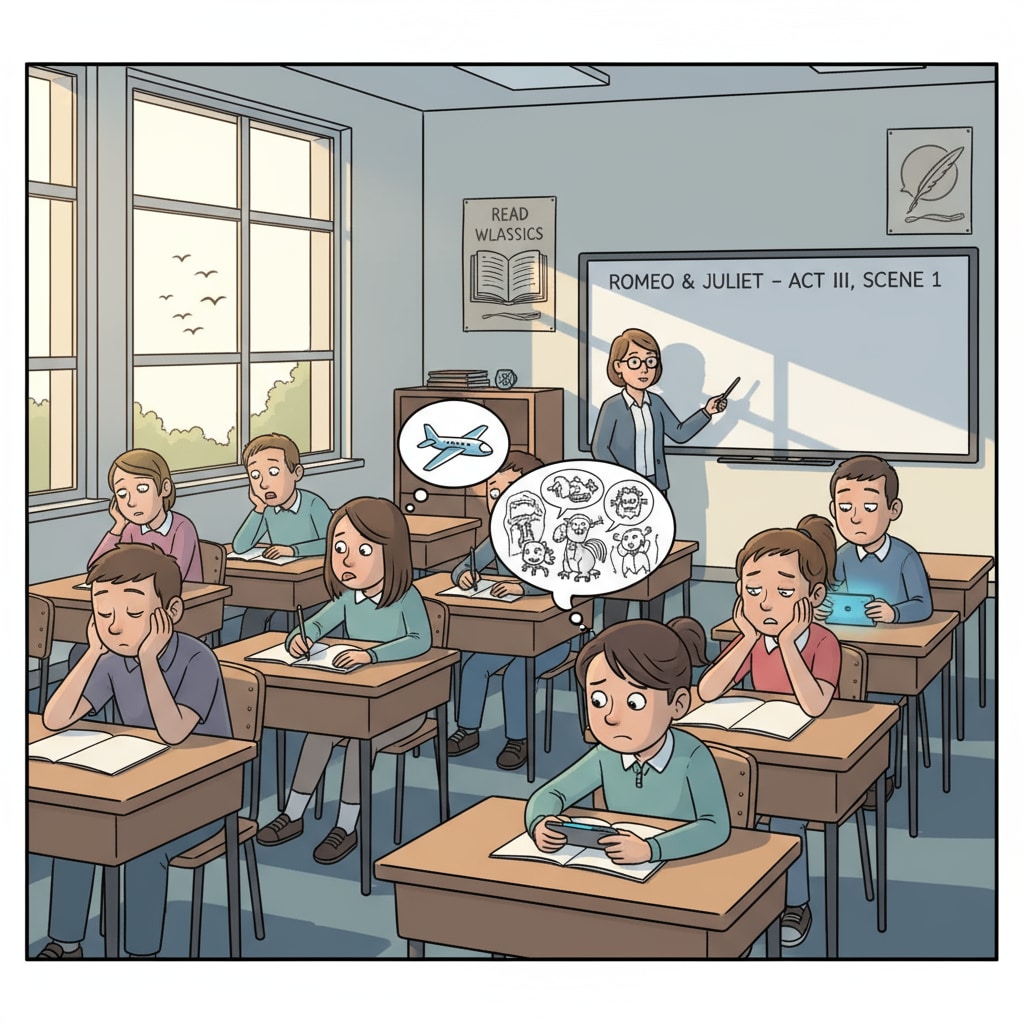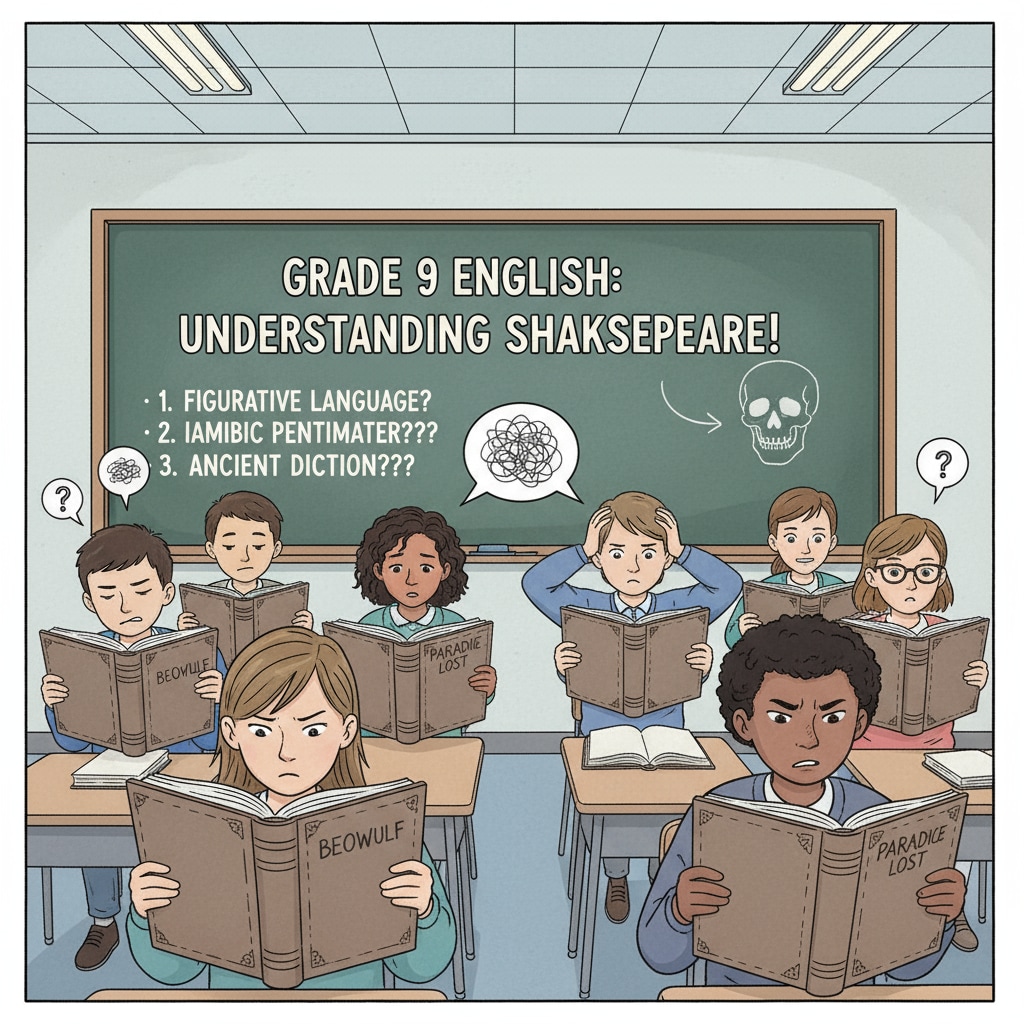English and literature courses, student experiences often undergo significant changes as students progress through their academic journey. In particular, the transition from Grade 8 to Grade 9 can bring about a negative shift in students’ attitudes towards these courses. This article delves into this phenomenon, exploring the reasons behind it and suggesting ways to address it.

The Disconnection in Grade 9 English and Literature Courses
As students enter Grade 9, they frequently encounter a sense of disconnection in their English and literature courses. The curriculum seems to take a sudden leap in difficulty, with more complex texts, advanced grammar, and in-depth literary analysis requirements. For example, in literature courses, the works studied may shift from more straightforward stories in Grade 8 to classic novels and plays that demand a higher level of comprehension. This sudden change can leave students feeling overwhelmed and disengaged. According to Britannica, educational transitions often pose challenges to students’ learning experiences.

The Root Causes of Resistance
There are several factors contributing to students’ resistance in Grade 9 English and literature courses. Firstly, the teaching methods may not be adjusted to meet the new needs of students at this stage. Teachers might still rely on traditional lecture-style teaching, which fails to engage students actively. Secondly, the increased pressure from exams and assignments can be daunting. Students are expected to perform well in both English language proficiency tests and literary analysis tasks, leading to high levels of stress. Additionally, the lack of connection between the curriculum and students’ real-life experiences makes it difficult for them to relate to the content. As stated on Wikipedia, the relevance of educational content is crucial for student engagement.
To address this issue, educators need to adapt their teaching methods. They can incorporate more interactive activities such as group discussions, role-plays, and multimedia presentations. This will not only make the classes more interesting but also help students better understand the complex concepts. Parents, on the other hand, should provide a supportive environment at home, encouraging their children to read and discuss literature. By working together, educators and parents can help students overcome their resistance and regain their love for English and literature courses. Readability guidance: In this section, we’ve used short paragraphs to break down the causes clearly. Each cause is presented simply, and transition words like ‘firstly’,’secondly’, and ‘additionally’ are used to make the flow smooth.


